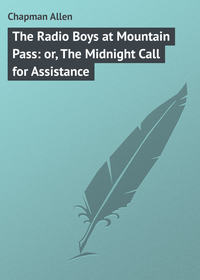Kitabı oku: «The Radio Boys at Mountain Pass: or, The Midnight Call for Assistance», sayfa 4
Bir şeyler ters gitti, lütfen daha sonra tekrar deneyin
Türler ve etiketler
Yaş sınırı:
12+Litres'teki yayın tarihi:
10 nisan 2017Hacim:
150 s. 1 illüstrasyonTelif hakkı:
Public Domain